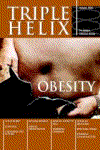God has a heart concern for the defenceless and vulnerable (Psalm 82:3-4). It is a high calling to care for such people, but temptations to fail in this area are surprisingly great. The intensivist trying to run a service with limited beds or the physician with a budget deficit face organisational and financial pressures that make it difficult to focus on the needs of the vulnerable patient. 'Best interests' can subtly be corrupted to 'most expedient'.
Mr Leslie Burke, who suffers with a progressive neurological condition, has recently challenged the GMC guidance to doctors in these situations in the UK.[1] The judge found in his favour and has made a ruling that significantly raises the standard of protection for vulnerable people who cannot direct their own care. Previously decisions regarding nutrition and hydration were based on a doctor's view that providing such treatment would 'cause suffering or be too burdensome in relation to the possible benefits'.[2] Now doctors must show evidence that a patient's life has become 'intolerable' before such treatment can be withdrawn or withheld. Most importantly however, decisions about treatment in general must now be referred to the courts 'where there is any doubt as to either capacity or best interests'.
In particular the judge referred to specific instances when doctors should seek the Court's guidance: for example, where there is doubt or disagreement about a patient's capacity or where there is evidence that a patient even if incompetent resists or disputes the proposed treatment. Also where friends or family present evidence or assert that a treatment plan is not in the patient's best interests then the court should be consulted.
The ramifications are huge. This judgment signals a dramatic shift from bedside decision-making to the courtroom, away from the everyday pressures of bed management and finances. Christian doctors should welcome this judgment. It provides a means of resisting the pressures of expediency and truly considering what is best for vulnerable patients. Two caveats need to be sounded, however.
Firstly, going to the Court is expensive, diverting valuable resources away from patient care, and may be distressing for families. The legal process may be cumbersome. Christian doctors should seek a more accessible and cost effective way to implement this judgment or it will simply be seen as unworkable or even paradoxically unjust.
Secondly, the judgment makes no mention of how clinicians should resolve the dilemma of the competition for resources. The Burke judgment must be balanced against the need for equity of access to treatment for all. Christian doctors need to take the initiative in driving this debate forward in a godly way, or the latter state could be worse than the first.
































